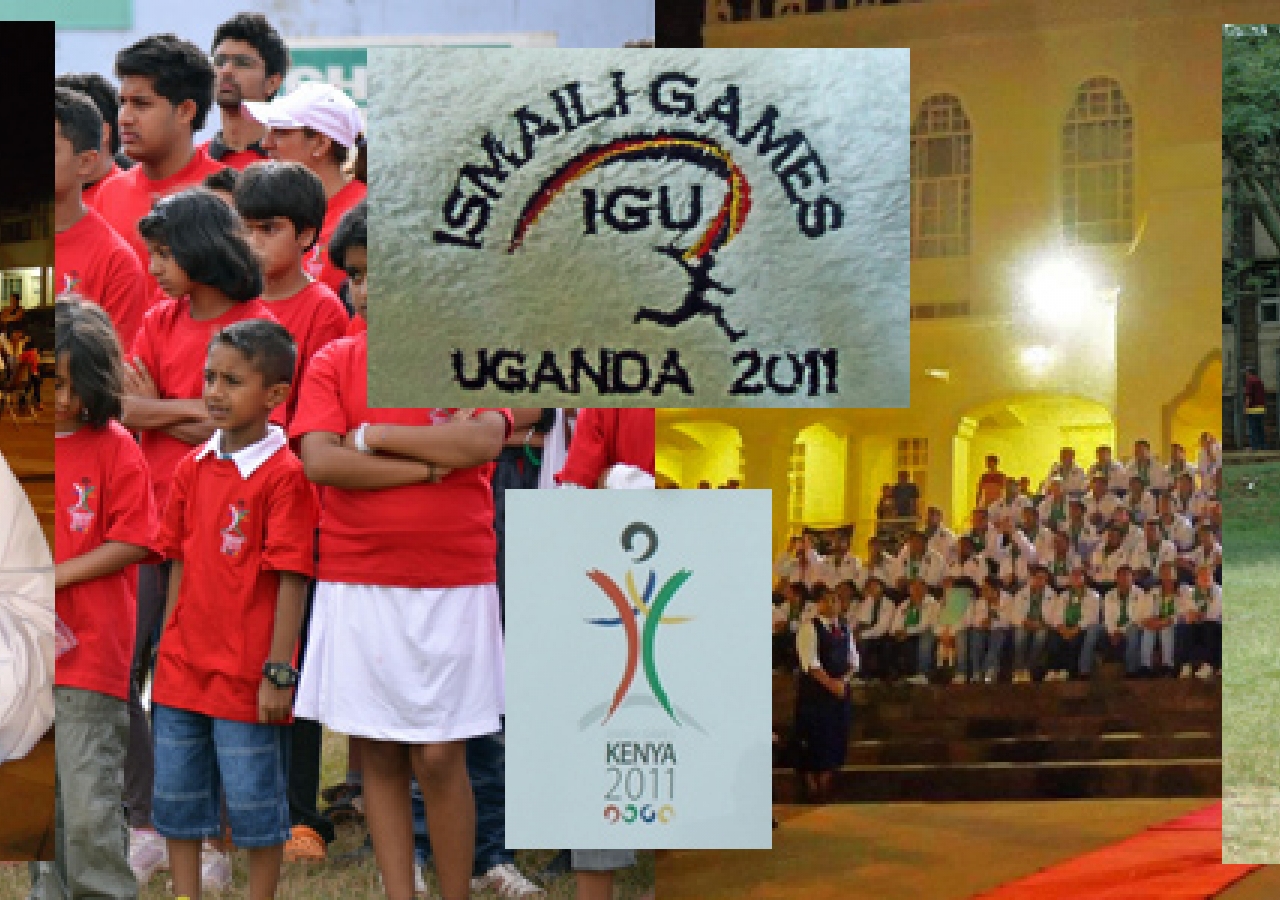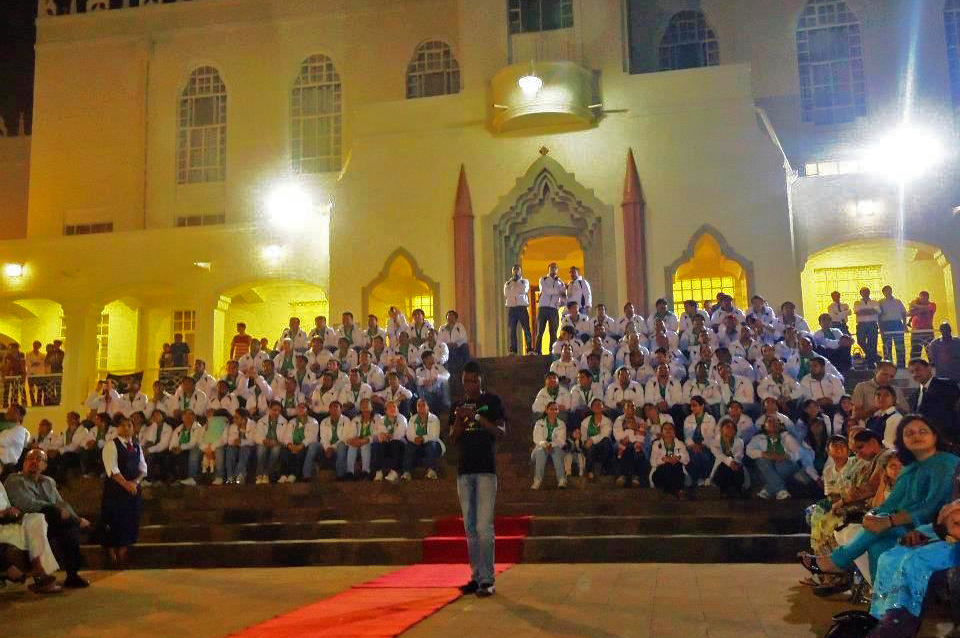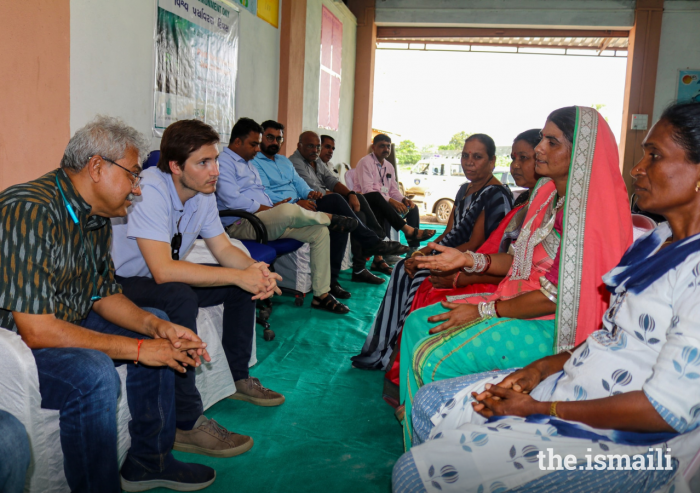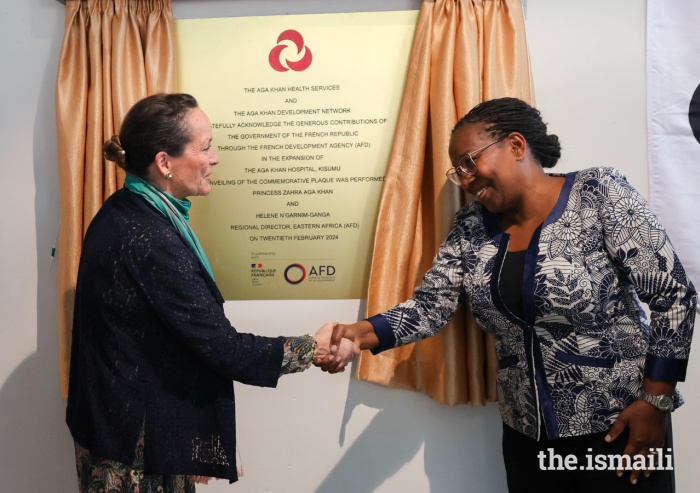 Athletes take part in the opening ceremony of the 2011 Ismaili Games Kenya. Courtesy of the Ismaili Council for Kenya
Athletes take part in the opening ceremony of the 2011 Ismaili Games Kenya. Courtesy of the Ismaili Council for KenyaIn Uganda, some 140 athletes registered to compete in nine sports that were held at three venues in Kampala. Darkhana Jamatkhana served as the primary site for the Games, hosting volleyball, badminton, table tennis, throw ball, chess, and carom. Participation was widespread, with strong representation from women in the Jamat, who represented nearly one third of the athletes.
While the main event took place over three days between 21-23 October, qualification rounds took place in the weeks prior. As athletes competed into the wee hours of the morning, spectators were served a continuous supply of sweetened chai. “It was a truly unforgettable time for the Ugandan Jamat,” said one Jamati member.
 Uganda's renowned Ndere group entertains during the opening ceremony of the 2011 Ismaili Games Uganda. Courtesy of the Ismaili Council for Uganda
Uganda's renowned Ndere group entertains during the opening ceremony of the 2011 Ismaili Games Uganda. Courtesy of the Ismaili Council for UgandaThe opening ceremony of the Uganda Games featured entertainment by the Ndere dance troupe, who are well remembered for having performed during Mawlana Hazar Imam's Golden Jubilee visit to the country. During the ceremony, athletes took oaths of sportsmanship as the Jamat bore witness, and the Games were officially declared open.
“We had benchmarked it to be a mini-Golden Jubilee Games” said Anisa Karmali, Convener of Ismaili Games Uganda, who recalled the 2008 Games that had drawn Ismailis from around the world to Nairobi in commemoration of Mawlana Hazar Imam's Golden Jubilee.
Meanwhile in Nairobi, the 2011 Ismaili Games Kenya opened with a torch lighting ceremony. Sportsmen and women from all over Kenya, Burundi and South Africa came together at the Aga Khan Sports Centre to celebrate the Games between 24 – 26 December.
The Kenya Games, which were the Jamat's first since the 2008 Golden Jubilee Games, drew 220 participants, who took part in a range of sports, including soccer, hockey, swimming, volleyball, and athletics.
The Chess competition provided participants with endless agonising moments as rooks and knights were pitted, one against the other, with uncanny skill. Although heavy rains forced the cancellation of planned cricket matches, golf – which had been played at the Windsor Golf and Country Club the week prior to the event – was deemed a resounding success.
The end of the Games in both countries were marked with pomp and splendour. The final gala dinner in Nairobi saw the vast Parklands pavilion transformed with a colourful array of kikois and kitenges in keeping with a coastal theme. The medals ceremony was followed by a traditional Tajik dance that was performed by students from Tajikistan who are studying at the Aga Khan Academy, Mombasa. The closing ceremony in Kampala featured folk dances performed by women and students.
The Ismaili Games were a celebrated success in both Kenya and Uganda. It is hoped that future games will continue to uphold this important Jamati tradition of sport.










